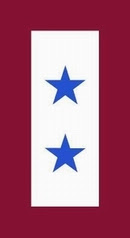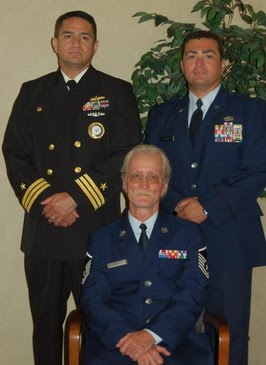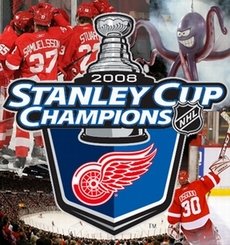An Occasional Correspondent sends this along...
General Giap was a brilliant, highly respected leader
of the North Vietnam military. The following quote
is from his memoirs currently found in the
Vietnam war memorial in Hanoi:
"What we still don't understand is why you Americans
stopped the bombing of Hanoi. You had us on the
ropes. If you had pressed us a little harder,
just for another day or two, we were ready
to surrender! It was the same at the
battle of TET. You defeated us!
We knew it, and we thought
you knew it.
But we were elated to notice your media was
helping us. They were causing more disruption in
America than we could in the battlefields. We
were ready to surrender. You had won!"
General Giap has published his memoirs and confirmed
what most Americans knew. The Vietnam war was not
lost in Vietnam -- it was lost at home. The
same slippery slope, sponsored by the US media,
is currently underway. It exposes the
enormous power of a Biased Media to
cut out the heart and will of
the American public.
A truism worthy of note: ... Do not fear the enemy, for
they can take only your life. Fear the media, for
they will destroy your honor.
I did some slight reformatting to the above... like changing the font colors and sizes from about six of each to your run o' the mill standard stuff... but the verbiage has been left intact.
General Giap may or may not have actually said these things about the Vietnam war and our Wonderful Media's role in losing it. Snopes doesn't like this e-mail or its variants that have been circulating since before 2004. Neither does the web site Urban Legends, which quotes Clemson history professor Edwin Moise on the subject. The relevant bits:
The most relevant statement I could find that is actually attributable to General Giap was uttered in a 1989 interview with Morley Safer, as excerpted in The Vietnam War: An Encyclopedia of Quotations by Howard Langer (Greenwood Press, 2005, p. 318):So there's that. There's no doubt the daily horror show of pitched battles, bloody American casualties, and cynical commentary from both the war zone and inside the Beltway had a major impact on the outcome of the war. The MAIN reason we lost the Vietnam war was we didn't have the national will to continue the fight. That was the tragic part.
We paid a high price [during the Tet offensive] but so did you [Americans]... not only in lives and materiel.... Do not forget the war was brought into the living rooms of the American people. ... The most important result of the Tet offensive was it made you de-escalate the bombing, and it brought you to the negotiation table. It was, therefore, a victory....
The war was fought on many fronts. At that time the most important one was American public opinion.
I'm told Stephen Colbert has an expression he either uses or used to use: "truthy." General Giap's invented comments have the ring of truthiness and serve as a reminder for the fight we're engaged in today. The American people need to remember why we're engaged in this fight, what's at stake, and above all: sustain the will to WIN.





.jpg)




We lost the war when we took the French side. That country fought the Japanese, and in that proved they were on the right side.
ReplyDeleteThe only reason they went communist, is because we joined the French to return it to colonial status.
Everything else is just a body count.
'...the most important one was American public opinion.' If I may weigh in. I feel that probably he most tragic part of the Vietnam war was the returnig veterans. Why were they so hated? They didn't have a choice on going or not. They were drafted. They were told where to go and what to do. I agree with you Buck, the media is fighting this war at home and winning it for the opposition. Fortunately that is not the case here in Canada (or not as bad).
ReplyDeleteMy parents generation was "total war." That is, the whole country went to war, and the warriors went to either win or lose, and their duration of enlistment was "when the war was over + 6 months".
ReplyDeleteVietnam was an escalating war that was not designed, it adapted. As General Westmoreland said, he didn't think the Vietnamese could adapt as fast as they did.
Hollywood has done much to shape the younger generations view of Vietnam (the war). In truth, returning soldiers while not honored with big parades, were in fact honored in the communities they left. I have fond memories of soldiers returning, and big parties in our neighborhood. Lucky for us, the soldiers all came home, and while some were on crutches, none of them were in boxes.
Anon: I sorta agree with you, specifically about us supporting the French. But Uncle Ho was a commie from the git-go.
ReplyDeleteDeb: Good point about the vets; I have some not-so-good memories about coming back from overseas, landing at Travis AFB, and having to run the gauntlet at SFO's airport. THAT wasn't pretty. But as for the draftee thing... not ALL of us were drafted.
Anon: Soldiers that returned to small communities... mostly in the heartland... WERE honored, true. And EVERY VFW hall was a refuge. That wasn't so in most cities and in nearly every burg with a university of any size (except for the VFW halls, as noted).
The most important event, which has long since been forgotten, is the United States installed the dictator Diem in 1955. Thus, the elections were off, and the country was permanently divided.
ReplyDeleteUncle Ho, and Papa Giap weren't going to put-up with a two-bit dictator. Especially since he was sitting on all the land good for crops.